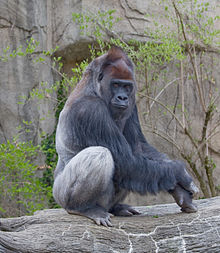Protecting Africa’s Endangered Primates | Tunde Folawiyo
Amidst a range of stunning landscapes, the continent of Africa is home to some of the world’s most recognised species of wildlife. Thousands of species of animal roam the grounds of Africa’s most famed locations, as seen by native Africans such as Tunde Folawiyo among others throughout the globe. Whilst the natural beauty surrounding these animals and their habitats are marvellous, some of Africa’s wildlife including the continent’s endangered species of primate are at risk of extinction. In order to aid the preservation of these animals, it is imperative that we become familiarised with the  species at risk.
species at risk.
The largest of all living primates, the mountain gorilla and the Western lowland gorilla are among Africa’s most recognised endangered species. The Western lowland gorilla is found deep within lowland tropical rainforests. Living in family groups of 2 to 20 individuals, these gorillas are known as peaceful creatures. Due to illegal hunting and destruction of habitat, the mountain gorilla remains at risk with approximately 680 of these creatures still alive today.
Chimpanzees are social animals that live in communities with 20 to 100 individuals. These creatures are omnivorous and feed on foods such as fruit, flowers, seeds, bird eggs and small animals such as leopard cubs. Whilst the exact population of remaining chimpanzees is uncertain, experts have estimated there may be as little as 190,000 left in the wild as of the 2008. Factors such as human expansion, hunting and commercial trapping have all contributed to the chimpanzee’s destroyed habitats, further endangering the lives of this special species.
Found on Bioko Island, the red-eared nosed-spotted monkey is one of the rarest monkeys of Africa. Whilst little is known about their ecology and behavioural tendencies, the red-eared nosed-spotted monkey can often be found in groups of 4 to 35 consisting. These creatures have been observed to be active only during the day, spending much of their time in trees. Whilst Nigerian law prohibits hunting and trading, the lives of these creatures remain endangered.
Whilst there are currently efforts underway to preserve Africa’s endangered species of primate, such as United Nations Environmental Programme’s establishment of the Great Ape Survival Project, much more can be done to ensure these creatures thrive once again. African citizens such as Tunde Folawiyo continually support the preservation of the continent’s endangered species. Those wishing to aid in this cause may visit the National Wildlife Foundation’s website http://www.nwf.org/What-We-Do/Protect-Wildlife/Endangered-Species.aspx for more information on how to make a contribution to protect Africa’s endangered animals.
 Tunde Folawiyo
Tunde Folawiyo
Leave a Reply